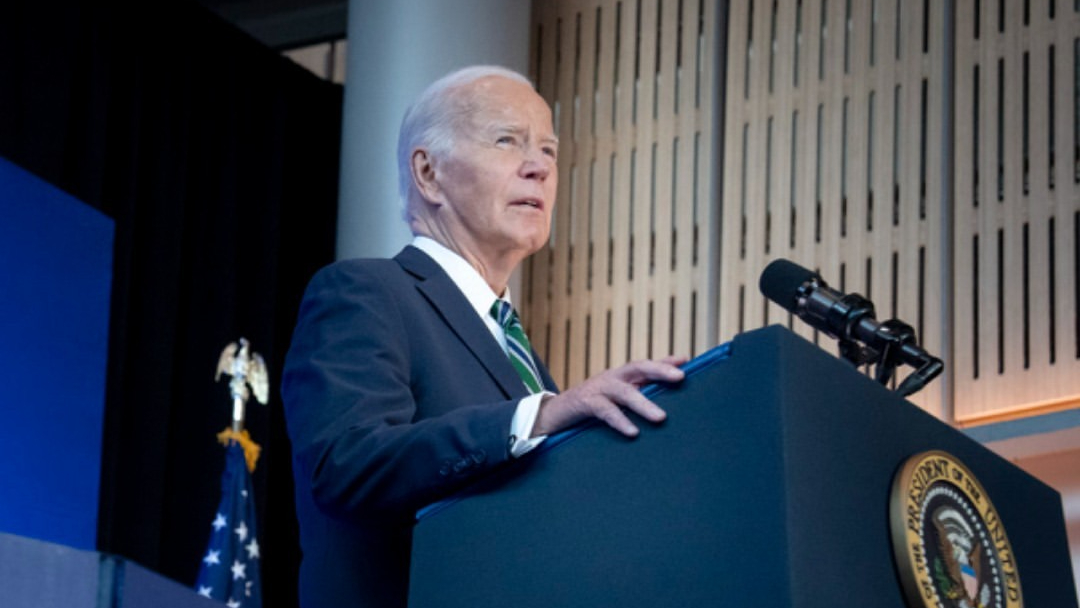Biden Faces Urgent Deadline on $39 Billion CHIPS Act Deal: Intel CEO Expresses Disappointment as Delays Persist
The Biden administration is under intense pressure to finalize key deals under the CHIPS Act before President-elect Donald Trump takes office. With $39 billion in funding at stake, a key piece of U.S. technology strategy—securing the country’s semiconductor supply chain—is at risk. Signed into law in 2022, the CHIPS Act is intended to reinvigorate U.S. chip manufacturing, reduce dependence on Taiwan and China for advanced semiconductors, and bolster national security. But the clock is ticking, and the process has been slow, leaving some industry giants like Intel frustrated with the lack of progress.
The CHIPS Act was designed to bring U.S. semiconductor production back home, reducing reliance on foreign suppliers, particularly Taiwan. However, as we approach the end of 2024, the situation has become increasingly uncertain. Despite the promise of $39 billion in funding, only two deals worth $6.6 billion have been fully finalized, according to the U.S. Commerce Department. That leaves a staggering $32 billion still unallocated, raising concerns about the U.S.'s ability to maintain its competitive edge in a critical global industry.
Intel CEO's Frustration: "We Are Disappointed"
Pat Gelsinger, the CEO of Intel, has expressed his frustration with the delays in a strongly worded statement. Gelsinger described the slow pace of the CHIPS Act’s funding distribution as “disappointing,” signaling that Intel—one of the primary recipients of the funding—has been waiting for over two years. His comments underline a growing impatience within the tech sector, which is heavily dependent on the timely implementation of the Act to increase domestic production and avoid further disruptions to the supply chain.
Intel, one of the biggest players in the semiconductor industry, has been vocal about the need for swift action. For Intel, this funding is critical to expanding manufacturing capabilities, particularly as the company works to maintain its position at the forefront of the chipmaking industry. Gelsinger’s frustration comes at a time when global demand for semiconductors is surging, and the U.S. is in a race against China to dominate the production of these vital components. Without these government-backed investments, American companies could be left behind.
“We are disappointed by how long and how slow the dispensing of funds has been,” said Gelsinger in an interview with Bloomberg. The CEO’s remarks highlight the growing concern in the tech industry that the U.S. is losing valuable ground in the global semiconductor race.
TSMC Deal Provides Some Relief, But Bigger Challenges Remain
While the CHIPS Act has seen some progress, the fact that only $6.6 billion worth of deals have been finalized is a source of concern. Last week, the Biden administration reached an agreement with Taiwan’s TSMC (Taiwan Semiconductor Manufacturing Company), one of the world’s largest semiconductor manufacturers. This deal, worth $6.6 billion, is a positive step in the right direction. TSMC will build a new semiconductor manufacturing plant in the U.S. as part of the agreement, which is expected to provide a significant boost to domestic chip production.
However, while the TSMC deal offers some immediate relief, it’s not enough to quell concerns across the industry. Only a small fraction of the total CHIPS Act funding has been dispensed, and with the deadline approaching, the pressure is mounting for the administration to speed up the process. According to the Commerce Department, at least $1 billion of the TSMC deal is expected to be rolled out before the end of 2024, but much more needs to be done to fully implement the objectives of the CHIPS Act.
The urgency is amplified by the growing global demand for semiconductors, which are the lifeblood of the modern economy. From consumer electronics to electric vehicles to artificial intelligence, nearly every technological innovation depends on chips. The U.S. is facing increasing competition from China and other countries, and it cannot afford delays in expanding domestic production.
Trump’s Challenge: Will the CHIPS Act Face New Obstacles?
As the Biden administration struggles to finalize deals under the CHIPS Act, there is a looming challenge: the incoming Trump administration. President-elect Donald Trump has already voiced his skepticism about the CHIPS Act, opting for tariffs as a more effective means of boosting domestic semiconductor production. In interviews and public statements, Trump has argued that tariffs, rather than subsidies, would better incentivize companies to set up manufacturing operations in the U.S.
Trump’s approach could throw a wrench into the CHIPS Act’s implementation. While Trump may not immediately dismantle the Act, his administration could slow down or change the parameters of the program, potentially undermining the progress that has been made. Analysts like Jeff Koch from Business Insider suggest that Trump’s team could introduce changes that may further delay the disbursement of CHIPS Act funds. This uncertainty is causing anxiety among tech companies, especially Intel, which needs the funding to ramp up production at its U.S. facilities.
Trump’s stance on tariffs and semiconductor production could have long-lasting consequences. While some of the CHIPS Act deals may be legally binding, future administrations have the power to change the rules or introduce new conditions that could alter the landscape for U.S. semiconductor manufacturing.
Bureaucratic Roadblocks: Slower Than Expected Progress
In addition to external political challenges, the CHIPS Act has been bogged down by internal bureaucratic hurdles. The allocation of funds requires companies to meet certain benchmarks, and these requirements have created an additional layer of red tape that has slowed down the distribution process. Intel, along with other companies, is still negotiating terms with the government, and progress has been slower than expected.
The complexity of the process has led to delays in funding, as companies must fulfill various requirements before they can access the money. The application process itself has become a challenge, with companies needing to jump through multiple hoops to ensure they qualify for the CHIPS Act funds. For a company like Intel, which is seeking significant financial backing to boost its manufacturing capabilities, these hurdles are frustrating, especially when the global semiconductor shortage is an ongoing issue.
While the Biden administration has promised to expedite the process, the delays are becoming increasingly difficult to ignore. Time is running out for the government to fulfill its promises and lock in these critical deals before the political landscape shifts.
The Economic Stakes: Why the CHIPS Act Matters
The semiconductor industry is central to the modern economy, powering a wide range of technologies that are essential to daily life. The CHIPS Act was designed to address a critical vulnerability in the U.S. supply chain—overdependence on foreign manufacturers, particularly in Taiwan. The semiconductor shortage of 2020 and 2021 exposed how fragile the global supply chain is, with car manufacturers, tech companies, and even the medical industry facing delays and disruptions due to a lack of available chips.
By investing in domestic semiconductor manufacturing, the U.S. aims to reduce its reliance on Taiwan and China, ensuring that it has a more resilient supply chain. This is crucial not only for economic growth but also for national security, as chips are used in everything from military equipment to critical infrastructure.
However, the delays in the CHIPS Act funding are hindering the U.S.’s ability to meet these goals. As more countries ramp up their chip production capabilities, the U.S. risks falling behind if it doesn’t act swiftly. The longer the funding is delayed, the longer it will take for U.S. companies to ramp up production and secure their place in the global semiconductor market.
Biden’s Dilemma: Can He Lock in Deals Before January?
With the January 2025 deadline fast approaching, the Biden administration faces a dilemma: can it finalize the CHIPS Act deals before Trump takes office? The next few weeks will be critical in determining whether the Biden administration can deliver on its promise to secure the U.S.’s semiconductor future. The industry is watching closely, and the pressure is mounting to get these deals done.
If Biden can finalize these agreements, it will represent a major win for U.S. manufacturing and economic security. But if the deals fall through, it could set back the U.S.’s semiconductor industry by years. The stakes are high, and the clock is ticking.
The Future of U.S. Semiconductor Manufacturing
The CHIPS Act represents a pivotal moment in U.S. manufacturing and technological innovation. With the global semiconductor race intensifying, the U.S. must act quickly to secure its position as a leader in chip production. However, delays in funding allocation, political uncertainty, and bureaucratic hurdles are complicating the process.
Intel, along with other companies in the industry, is eagerly awaiting the funds necessary to ramp up production and ensure that the U.S. remains competitive on the global stage. The outcome of the CHIPS Act deals will have long-term implications for the future of U.S. technology and manufacturing. As the Biden administration faces increasing pressure to finalize these deals before Trump takes office, all eyes will be on Washington in the coming weeks. The outcome will determine whether the U.S. can secure its semiconductor future or fall behind its global competitors.
The delays in distributing CHIPS Act funds are detrimental to the U.S. semiconductor industry. With global competition intensifying, the slow pace of funding jeopardizes the country's ability to secure its place as a leader in chip production. Delays also create uncertainty for companies like Intel, which depend on clear terms to proceed with critical investments. The potential change in administration adds further instability, and if not addressed swiftly, the delays could hinder America’s efforts to reduce reliance on foreign semiconductor production and secure supply chains. In an increasingly tech-dependent world, such setbacks could have long-lasting economic consequences.









